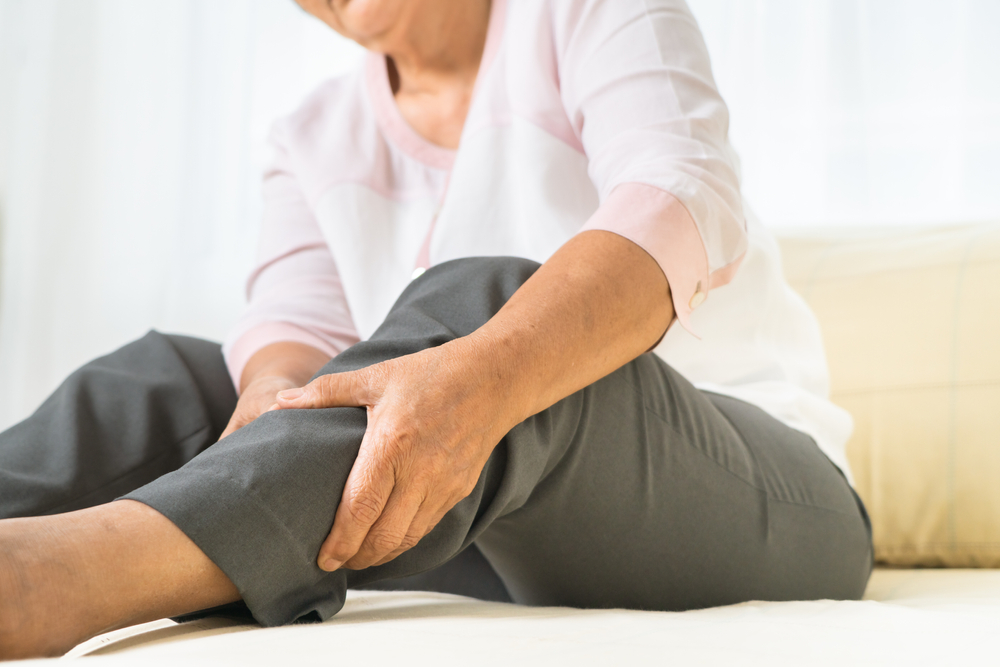A common nighttime discomfort experienced by many individuals that makes it difficult for them to sleep at night – leg pain is the worst nightmare to even think of.
If you’ve ever found yourself struggling with restless nights due to unexplained leg pain at night, you’re not alone.
Even though your legs support the weight of your body throughout the day, they shouldn’t be giving you discomfort, especially at night.
Orthopedic surgeons at Healthwire, frequently hear patients complaining about stabbing pain, dull aching, or an odd tingling feeling in their legs. These are frequently signs of a problem rather than the problem itself, and a doctor can assist identify and cure your uncomfortable legs.
Table of Contents
Causes of Pain in Legs
These can be divided into two categories.
- Circulation pain
- Musculoskeletal pain
Let’s discuss these in detail.
Circulation Problems
Circulation problems can be causing your legs to hurt at night. Wanna know how?
Blood Clots
Blood clots that occur after long-distance flights or prolonged periods of sitting are commonly known as travel-related deep vein thrombosis (DVT). This condition is a type of blood clot that forms in the deep veins of the legs or, less commonly, in the arms and can cause leg pain at night.
A blood clot’s physical presence will let you know that something is wrong. Typical signs include:
- It affects one leg
- Pain in the leg
- Redness
- May come up with swelling and warmth
Artery Disease
Leg pain at night might result from insufficient blood flow to the feet, which can happen anytime.
By standing up or hanging your legs over the edge of the bed, which causes the blood to flow back into the feet (thanks to gravity), people frequently relieve this pain.
Unfortunately, the following are frequently linked to an elevated risk of peripheral artery disease:
- Diabetics
- Obesity
- High Cholesterol and high blood pressure
- Elderly
- Cardiovascular disease
- Smokers
Vein Issues
Varicose veins, which are bulging, bloated, and twisted veins caused by impaired circulation, are more prevalent in patients who have problems with fluid retention.
Because the veins aren’t functioning as they should, your leg’s pressure may rise throughout the day due to leaky valves or weak vein walls.
You can attempt the following to help the “pooling blood” pump and leg pain at night:
- Walking and exercising make your blood flow
- When seated, elevate your calves to help the blood return to the heart by compressing your veins
- Elevating your legs will help the gravity-assisted return of blood to your heart through your legs
- With your doctor, go over your symptoms
Musculoskeletal pain
The musculoskeletal pain felt in the legs at night time can be because of cramps, inflammation, or bone fracture.
Cramps
Specific physical movements can cause cramps if your muscles are tired. Cramps may be brought on by restlessness or shifting positions in bed at night. This sets off the muscle’s cramping response.
Surprisingly, they can also be brought on by immobility, particularly if you maintain a position for an extended amount of time. One of the causes can be dehydration as well for leg pain at night.
Doctors a Hameed Latif Hospital advise actively attempting to stay hydrated and well-fed to prevent this.
Inflammation
Your muscles and tendons may be sore and inflamed at night because they are healing while you sleep, especially if you have an injury.
However, it is a rare sign of physical pain and can point to a more serious injury or issue at hand. Therefore, it is crucial that you seek expert guidance if this is happening to you.
Anti-inflammatory medicine (if you are able to take it), ensuring that you are in a comfortable position while you sleep, and using cold or hot packs to help relieve your symptoms are a few at-home therapies you should try.
Fracture
The aching bone pain that is present day and night is one of the typical symptoms you may encounter. In contrast to stress fractures, when pain is mostly experienced during weight-bearing exercise and only at night, a bone fracture often doesn’t subside when you’re at rest.
Bone fractures typically originate from a single incidence, so you can probably pinpoint the exact moment when it happened, such as after a hard knock or if the bone was exposed to a lot of force after a significant fall, etc.
It will frequently seem like the bone is hurting rather than the muscles around it, and you can frequently identify the precise aching place.
Suggested Read: Stress Fractures from Sports Activities
When to See an Orthopedic Surgeon
In conclusion, the causes of leg pain at night can vary from person to person, but they often stem from underlying health conditions, lifestyle factors, or a combination of both. It is important to pay attention to the signals your body is sending and seek medical advice if you experience persistent or severe leg pain at night. To do that you can book an appointment with the best orthopedic surgeon i.e. Dr. Afzal Hussain in Pakistan by contacting Healthwire.
